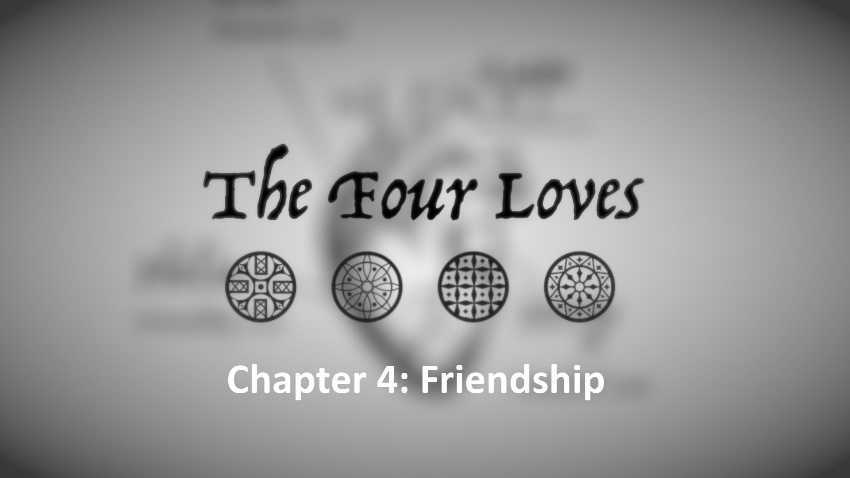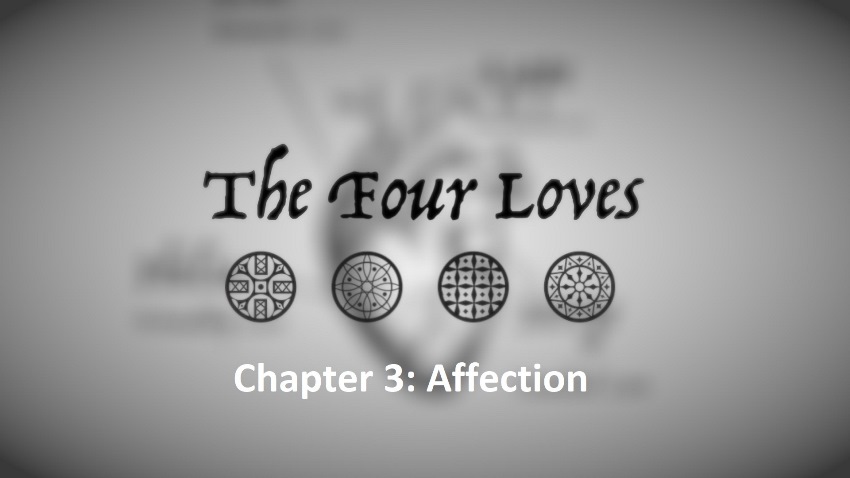The Four Loves – Chapter 4 (“Friendship”)


C.S. Lewis Doodle
Notes
Friendship and Modernity
…very few modern people think Friendship a love of comparable value [to Affection and Eros] or even a love at all. To the Ancients, Friendship seemed the happiest and most fully human of all loves; the crown of life and the school of virtue. The modern world, in comparison, ignores it.
The first and most obvious answer is that few value it because few experience it. And the possibility of going through life without the experience is rooted in that fact which separates Friendship so sharply from both the other loves. Friendship is…the least natural of loves; the least instinctive, organic, biological, gregarious and necessary…The pack or herd…may even dislike and distrust it.
…all that had once commended this love [to the Ancients] now began to work against it. [For modernity,] …it had not tearful smiles and keepsakes and baby-talk enough to please the sentimentalists. There was not blood and guts enough about it to attract the primitivists.
Secret Homosexuality?
It has actually become necessary in our time to rebut the theory that every firm and serious friendship is really homosexual… The very lack of evidence is thus treated as evidence; the absence of smoke proves that the fire is very carefully hidden… Those who cannot conceive Friendship as a substantive love but only as a disguise or elaboration of Eros betray the fact that they have never had a Friend…
Kisses, tears and embraces are not in themselves evidence of homosexuality… On a broad historical view it is…not the demonstrative gestures of Friendship among our ancestors but the absence of such gestures in our own society that calls for some special explanation. We, not they, are out of step.
Contrasting the friendship and the love affair
Lovers are always talking to one another about their love; Friends hardly ever about their Friendship. Lovers are normally face to face, absorbed in each other; Friends, side by side, absorbed in some common interest. Above all, Eros (while it lasts) is necessarily between two only. But [in friendship]… we possess each friend not less, but more as the number of those with whom we share… increases.
 Just because you’re holy doesn’t mean you can’t be a prankster…
Just because you’re holy doesn’t mean you can’t be a prankster…
